The Great Gatsby (May 10)
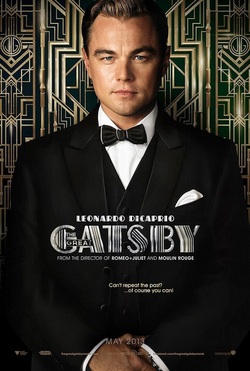
Fifth time's the charm for The Great Gatsby, the first adaptation of the novel to win America's heart after four cinematic failures. Leonardo DiCaprio (Jay Gatsby) displays a youthful enthusiasm not seen since his steamy car scene in Titanic. Tobey Maguire (Nick Carraway) trades boyish grins for thoughtful introspection. Enchanted by their performances, school principals across the country declare that students will now watch the Baz Luhrmann-directed film in lieu of reading the F. Scott Fitzgerald novel. Meanwhile, archaeologists uncover an old napkin used by Mr. Fitzgerald himself, where he's scribbled the actual meaning behind the novel's famous green light. High school English students rejoice.
Nightmare
For the fifth straight time, The Great Gatsby proves a cinematic flop. Director Baz Luhrmann's Moulin Rouge imagination betrays him in a film too wacky and grandiose even for Mr. Gatsby. DiCaprio hasn't looked this nervous since the steamy car scene in Titanic. Clearly miscast, Tobey Maguire distracts throughout, his puerile voice cracking during the film's climatic monologue. School principals everywhere declare that kids must read the novel a second time to undo the damage caused by the film. Maguire admits he has "no idea" what the green light means at a Spider-Man 5 press conference.
Star Trek Into Darkness (May 17)
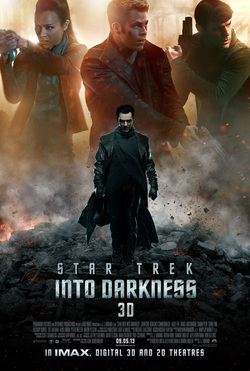
With CGI that would make Michael Bay drool, director JJ Abrams cements his position as king of the action genre. Star Trek Into Darkness improves on its 2009 prequel in every conceivable way, with Captain Kirk handsomer, the antagonist (Khan) more villainous, and Spock as emotionless as a Jack in the Box drive-thru attendant. Drowning in champagne after a blockbuster opening weekend, Abrams tells Entertainment Weekly that he's just cancelled all future Star Wars plans to focus exclusively on Star Trek. Trekkies everywhere attempt to high five.
Nightmare
Critics dismiss Into Darkness as a sophomore slump well before the film's release to the general public. Michael Bay mocks the "amateur CGI" on his personal blog. Spock shows too much emotion. 16-year-old boys everywhere save their money for Fast and Furious 6. At a teary press conference, Abrams announces that he will retire from Trek films in order to focus exclusively on Star Wars. Disney executives celebrate with a $3,000 bottle of wine.
Fast and Furious 6 (May 24)
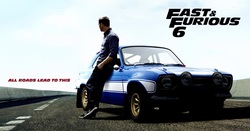
Paul Walker barely speaks. Vin Diesel barely flexes. Fast & Furious 6 opens to rave 3-out-of-4-star reviews and a $100 million opening-weekend. A sneakily capable Dwayne Johnson performance carries the film's narrative weight, and the cast makes it through all 130 minutes without saying "bro," "braw," or "hook a brother up."
Nightmare
In a tragic misreading of consumer taste, Universal Pictures pivots their cash-cow franchise from fast cars to psychological exploration, delving into the childhood and emotional development of series star Brian O'Conner (Paul Walker). Walker himself narrates for nearly all 130 minutes. In the closing moments, a shirtless Vin Diesel strolls in and tells Walker he's there to "hook a brother up."
The Hangover Part III (May 24)
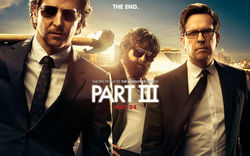
Like Ocean's 13 before it, The Hangover Part III breathes beer breath into a series nearly suffocated by its second installment. Bradley Cooper is as funny as ever, but he brings a tangible maturity honed on the set of Silver Linings Playbook. Zach Galifianakis avoids caricature, with a performance as quirky as it is surprising. Ed Helms nails a riotous scene involving three toothpicks, a pizza man, and an inflatable pool toy; for one glorious moment, we forget the last 26 episodes of The Office ever happened. In an unbilled cameo, director Todd Phillips himself serves a round of White Russians and personally apologizes for ever making The Hangover Part II. The cast appears on The Today Show the morning after the film's premiere, where the hosts correctly pronounce "Galifianakis" 26 times in a row.
Nightmare
The Hangover Part III is exposed for what everyone already knew it was: a shameless cash grab by Warner Bros despite a clearly disinterested cast. Cooper's ambiguous remark at the premiere—"I'm not saying I did it for the money"—becomes the Internet's most popular GIF within 4 hours of the film's release. Ed Helms is so awful that he wins an Emmy for his roundly-criticized season 9 portrayal of Andy Bernard (The Office). "The Hangover Part III just goes to show you how hard Helms must have worked to even appear vaguely palatable in the NBC sitcom," writes HitFix's Alan Sepinwall. Zach Galifianakis admits he "can't handle it anymore," and legally changes his last name.
After Earth (May 31)
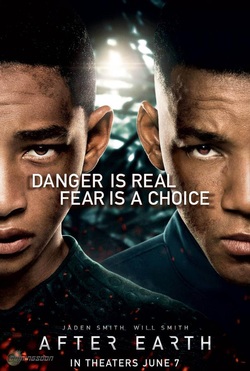
A little Will Smith charm proves the antidote to M. Night Shyamalan's precipitous decline, as After Earth edges out Iron Man 3 for the best opening weekend of the summer. Avid Shyamalan fans wait overnight to see the midnight showing, burning copies of The Happening and The Last Airbender for warmth. Kenneth Turan (LA Times) concludes a pleasantly surprised review with "My Sixth Sense is tingling!" Jaden, Will Smith's son (both in real life and the movie), maintains such an earnest look throughout the film that most reviewers only criticize him blandly. The Chicago Tribune even compliments him. We all forget that Will Smith passed on the lead role for Django Unchained.
Nightmare
M. Night Shyamalan does the impossible: for a record seventh time, critics unanimously agree that—somehow—the director's latest film is indeed worse than his last atrocity. Critics, bloggers, and grocery store baggers around the nation wonder if this time the man has truly bottomed out. "Can he go any lower?" asks The Huffington Post in its "Breaking News" section. At a joint press conference, Will Smith announces his retirement while Shyamalan reveals plans for three new films.
Man of Steel (June 14)
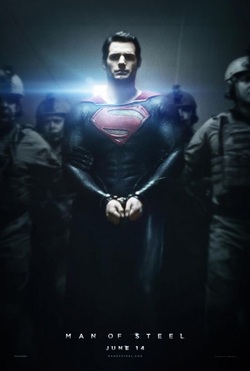
Despite being produced by Christopher Nolan, Man of Steel departs from the jaded-hero-debating-whether-the-world-needs-him shtick found in all 67 action movies produced over the last six years. Miraculously, Russell Crowe plays his supporting role dutifully, without unbalancing the rest of the film. He also does not sing. Warner Bros collects cape-fulls of cash and donates the profits to an advocacy group called LAATSMSHMSG (Let's All Agree To Stop Making Super Hero Movies, Seriously Guys).
Nightmare
Man of Steel proves the worst super hero flick since Hellboy (2004). Director Zach Snyder—in a misguided prioritization of "character over action"—spends 140 minutes "building the tension" before ending with a plodding, derivative eight-minute action sequence. Meanwhile, Russell Crowe takes every chance to relive the glory days, striding into the frame like he's still captain of the ship from Master and Commander: The Far Side of the World. Following the film's release, Warner Bros announces a five-year contract with Marvel wherein only super hero movies will be produced. LAATSMSHMSG shuts down due to lack of funding.
Monsters University (June 21)
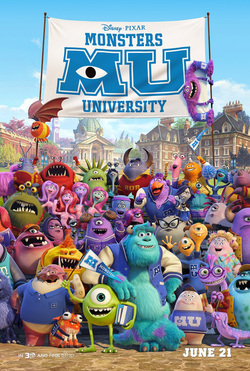
Pixar returns to form with the charmingly efficient Monsters University, the best feature film from the studio since Up (2009). At 95 minutes in length, University displays the strengths of Pixar's greatest short films, without the fat of Disney's more indulgent animated features. Later, while accepting the Oscar for Best Animated Film, Pixar's Chief Creative Officer John Lasseter publicly apologizes for Brave's uninspired plot. "We thought the three bear cubs would be enough," he says, choking back tears.
Nightmare
After Cars 2 and Brave, Pixar completes its trilogy of missteps with Monsters University. The Bleacher Report publishes a 26-page slideshow of "Pixar Disappointments" in a cheap effort to increase page views. "It's like that lousy college flick, Accepted (2006), only more bizarre and tediously family-friendly," concludes Time Out London's Tom Huddleston. Meanwhile, loyal Monsters, Inc. fans concede the Toy Story series' superiority to their obnoxious friends. John Krasinski goes on a media tour promoting the film, but only receives questions about why he "mailed in" seasons 7-9 of The Office. A bitter John Lasseter refuses to apologize for Brave after being harassed by reporters outside the 86th Acaemdy Awards.
Despicable Me 2 (July 3)
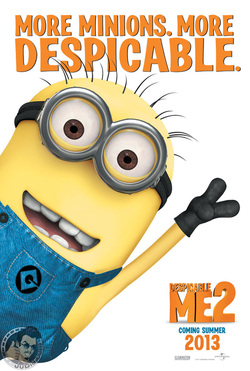
Bigger, sillier, and flat-out wackier than its prequel, Despicable Me 2 takes the animation scepter from Pixar's lazy, aging hands. Steve Carell's antics charm more than ever, as critics begin to wonder whether voice work was his destiny all along. Disney offers Universal Pictures President Ronald Meyer a cool billion for the franchise, and Meyer simply laughs. "I've seen Cars 2. I'm not stupid."
Nightmare
13 minutes into Despicable Me 2, viewers discover the film has (literally) no plot. "We figured we'd just riff on the whole Steve Carell thing," a meek Ronald Meyer admits after a lousy opening weekend. Soon after, a routine interview on NPR's All Things Considered makes national news when a surprisingly vindictive Carell lampoons directors Pierre Coffin and Chris Renaud, exclaiming that "even season seven of The Office wasn't this bad." Meyer attempts to sell the franchise to Disney. Three days later, a Disney intern responds: "Who do you think you are? Star Wars? Please."

 RSS Feed
RSS Feed
